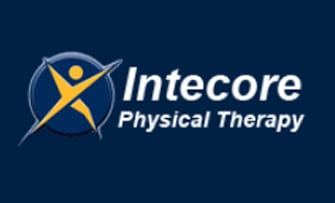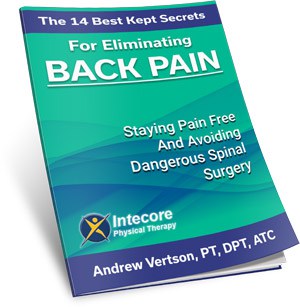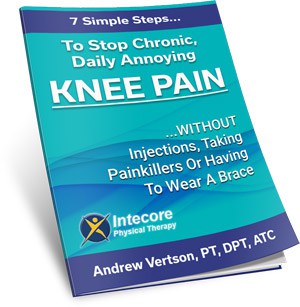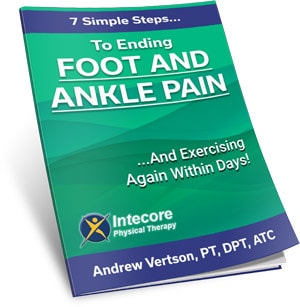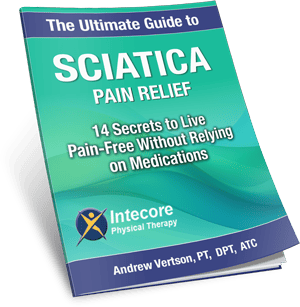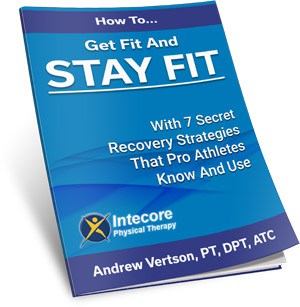 The causes of neck stiffness can be a tough thing to pinpoint. It may mean that there’s more than one thing at the root of the problem, so if you happen to suffer from constant neck pain, then you’ve come to the right place for answers.
The causes of neck stiffness can be a tough thing to pinpoint. It may mean that there’s more than one thing at the root of the problem, so if you happen to suffer from constant neck pain, then you’ve come to the right place for answers.
In order to help you determine the cause of your neck stiffness, we have compiled some simple techniques you can use. We explain how specific movements and exercises help relax the tight muscles in your neck, relieve tension headaches, and ultimately help combat chronic neck pain. So, if you’re fed up with soreness and stiffness in your neck, read on – these tips could be exactly what you need.
But first, we need to identify what is causing your neck pain – is it posture, an old injury, or stress that’s the culprit behind your aching neck muscles?
One of more common causes of neck stiffness is poor posture. It can strain your neck muscles if you’re hunched over your computer or phone for hours on end. Another possibility is an old injury – even something seemingly minor, like a fender bender, can cause lasting damage. And then there’s good old stress – we all know how tense our bodies can get when under pressure. Whatever the cause, taking the time to figure it out and address it can make a big difference in how you feel.
More Blogs From Intecore
How To Reduce The Risk Of An Injury
Can Physical Therapy Help A Stiff Neck?
What Is The Difference Between A Muscle Strain And A Sprain?
5 Causes of Neck Stiffness
A stiff neck can be a painful experience that disrupts your day-to-day life. But what exactly causes a stiff neck? Many people who suffer from this condition struggle to identify the root of the problem. Unfortunately, getting an answer on the causes of neck stiffness and pain – without a physical examination – can be difficult due to the complexity of possible causes. But let’s explore some possible explanations as to the causes of neck stiffness and how to manage or eliminate it. A few things could be behind those aching muscles. That’s why it’s essential to identify the cause so you can treat it effectively:
- Poor Posture – Slouching and not maintaining the correct posture can cause a stiff neck. Poor posture affects not only the way you look but also your neck health. Slouching and not maintaining the correct posture over time can cause your neck muscles to fatigue and shorten, leading to stiffness and discomfort. This can impact your day-to-day life and reduce your productivity. In addition, a stiff neck can make it difficult to move your head and even lead to migraines or tension headaches. So, paying attention to your posture throughout the day and taking steps to correct it before it becomes a persistent problem is crucial. Try making small adjustments to your sitting or standing posture, like aligning your ears with your shoulders.
- Sleeping in an Awkward Position – Spending prolonged periods in an uncomfortable position can lead to neck stiffness. After a long day, it’s tempting to flop into bed and drift off to sleep regardless of your sleeping position. However, sleeping in an awkward position can lead to more than just a restless night. If you wake up with a stiff neck, you may spend too much time with your head at an awkward angle. Unfortunately, this pain can linger throughout the day and negatively affect your mood and physical performance. It may seem inconvenient, but sleeping comfortably improves your overall well-being.
- Stress – Stress is a leading cause of muscle tension, which can lead to neck stiffness. Stress affects us all at some point and can come in many forms. It can be hard to avoid, whether from a busy work schedule, family obligations, or just dealing with day-to-day life. One of the main things that can happen when we’re stressed is muscle tension, which can lead to neck stiffness. This can be uncomfortable and sometimes painful, making it difficult to focus on anything else. The good news is that there are ways to reduce stress and alleviate these physical symptoms. By taking breaks, practicing relaxation techniques like deep breathing, or incorporating exercise into your routine, you can help prevent muscle tension and keep your neck relaxed.
- Repetitive Neck Movements – Repeatedly moving your head in one direction can strain your muscles and cause stiffness. As our daily lives become increasingly digital, more and more of us spend long hours hunched over screens, typing away at our keyboards. We spend hours upon hours glued to screens. Whether for work, school, or entertainment, this sedentary lifestyle takes a toll on our bodies. One area that is particularly susceptible to strain and stiffness is our neck. Repetitively moving your head in one direction, such as looking down at a phone, can cause significant discomfort. So, it’s important to be mindful of your digital habits and take steps to prevent this pain from becoming a long-term issue. Incorporating stretches and breaks into your daily routine can go a long way in keeping your neck healthy and pain-free.
- Injury or Trauma – A direct injury or trauma to the neck area is one of the biggest causes of neck stiffness: The neck area is a crucial part of our body that connects our head to the rest of our torso. Unfortunately, it is also an area prone to injury or trauma. When a direct injury or trauma occurs to the neck, it can result in long-term neck stiffness. This stiffness can affect your overall mobility and cause discomfort or pain. To ensure proper diagnosis and treatment, it is important to seek help from a physical therapist if you experience neck stiffness after an injury or trauma. With the right care, you can recover from the effects of neck stiffness and regain full mobility.
How To Treat A Stiff Neck
Dealing with neck pain and stiffness can be frustrating, but you can find relief with the right knowledge and commitment. Whether it is identifying the root cause of your aching muscles with the help of a physical therapist, incorporating stretching exercises into your routine, or investing in ergonomic equipment, you can do many things to manage your discomfort. Neck pain doesn’t have to stop you from leading a happy and active life.
- Try stretching exercises to increase the range of motion and release tension in the neck: If you’ve ever found yourself hunching over your desk or staring down at your phone for hours, chances are you’ve experienced neck stiffness and tension. Luckily, there’s a simple solution that you can do right at your desk: stretching exercises. You can increase your range of motion and release tension by stretching your neck for just a few minutes. Plus, stretching feels great and can help you feel more relaxed and focused throughout the day. So next time you feel your neck stiffen up at work, try simple stretches like tilting your head side to side or gently rolling your shoulders back.
- Massage sore muscles with a foam roller or tennis ball to loosen them up: Do you ever feel like your neck muscles are tight and sore after a long workout or a stressful day? Massaging those aches away doesn’t have to break the bank. All you need is a foam roller or even a trusty tennis ball. These tools can work wonders on your muscles, helping to release tension and increase your range of motion. Whether using a foam roller or a tennis ball, the technique is straightforward. Just apply gentle pressure to the sore areas on your neck and roll back and forth for a few minutes. Not only does this help to loosen up those muscles, but it can also provide a nice sensation of relaxation.
- Incorporate yoga poses into your daily routine to improve flexibility and reduce stiffness in the long run: Do you ever wake up stiff and achy? It’s not a good feeling, especially when you have a busy day ahead. However, incorporating yoga poses or a stretching/mobility drill into your morning routine can make a huge difference in how you feel for the rest of the day. It can improve flexibility and reduce neck pain and stiffness. Imagine waking up each morning feeling pain-free and ready to tackle the day.
- Make sure you’re getting enough rest – sleep deprivation can lead to stiff neck muscles. Have you been feeling extra tired lately? It may be time to check if you’re getting enough rest. Sleep deprivation leads to many health problems, including stiff muscles. So, it may be worth looking into your sleeping habits if you feel extra sore and stiff. Not getting enough sleep can also lead to crankiness, difficulty concentrating, and a weakened immune system. So, make sure you’re taking care of yourself and getting the rest you need. Your neck muscles (and your mind) will thank you for it.
- Consider an ergonomic pillow or chair for extra support during extended sitting periods. Let’s be honest. Sitting for extended periods can be a real pain in the butt, not just figuratively. Whether working from home, gaming with friends, or taking an online class, hours on end in a chair can wreak havoc on your cervical spine and posture. The good news is that you don’t have to suffer through the discomfort. Investing in an ergonomic chair or pillow can provide the extra support your body (and neck) needs to stay comfortable and healthy even if you work long hours.
But if you still have neck stiffness or the pain worsens after trying these tips, we would 100% recommend booking a consultation with one of our physical therapists to get the help you identify the causes of neck stiffness and eliminate neck pain for good. You can book your free Discovery Session here.
- 7 Ways to Get Rid of Tension Headaches Naturally - July 1, 2025
- Why Are My Feet Swollen? Common Causes Explained - June 2, 2025
- What Is Restless Leg Syndrome? Symptoms, Causes, and Relief Options - May 5, 2025




